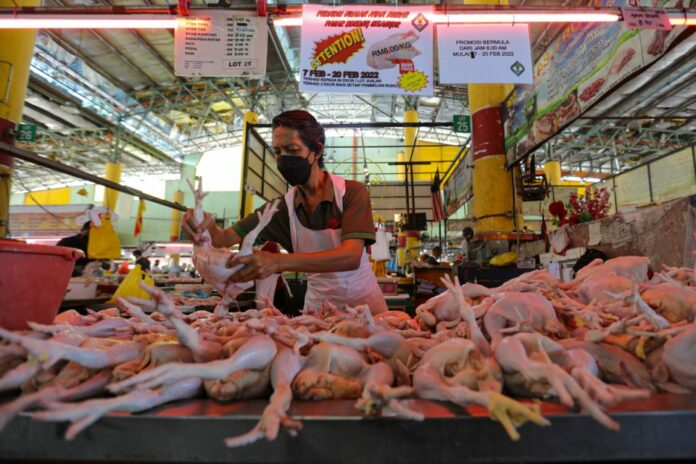IPOH, Nov 7 — The government’s move to float chicken prices from Nov 1 will benefit consumers as chicken producers, wholesalers and retailers will compete amongst themselves to offer competitive prices to customers.
Universiti Pendidikan Sultan Idris (UPSI) Management and Economic Faculty, Economics Department Head Assoc Prof Dr Zainizam Zakariya said they needed to do so to avoid the risk of losing their customers as consumers would shift to those offering lower and more affordable prices.
“Almost a week after the subsidies for chicken ended, market prices for chicken are competitive and much lower than subsidised prices, which is a national average of RM8.51 a kilogramme (kg) for standard chicken, while in Peninsular Malaysia, it is RM8.49.
“Chicken is being offered at even lower prices at supermarkets, as low as RM7.49 a kg. In Terengganu, media reports show that fresh chicken prices have dropped by around 15 per cent or by RM1.40 a kg, with traders selling between RM7.20 and RM7.99 a kg,” he told Bernama.
He added the government’s move to discontinue chicken subsidies can indirectly save almost RM4 billion in expenditure annually and that till February this year, the government has spent RM3.8 billion overall in subsidies for chicken, with breeders being the direct beneficiaries.
“Even with subsidised prices, the price of chicken was still high during festive seasons. The question is, who benefits from chicken subsidies? Obviously not consumers,” Zainizam said.
He said with floating prices based on the mechanism of supply and demand, the chicken industry would be more dynamic and attract investment and the use of the latest technology that would reduce production costs.
He also said that there were many chicken producers in the country and consumers can differentiate prices and the quality of products offered by each producer.
He noted that there were concerns that the drop in chicken prices was only temporary in nature, deliberately brought about by breeders who intended to ‘kill off’ smaller operators through predatory pricing mechanisms.
“Using this method, large-scale breeders are willing to lower prices to ensure that small-scale breeders cannot compete on the open market and will eventually shutter their operations.
“Without healthy competition, large-scale breeders might be able to monopolise the price of chicken in the long term. So what we should hope for is that the government and related agencies monitor the situation periodically to ensure there is no drastic rise in chicken prices in the market that would negatively impact consumers,” he said.
On Oct 30, Agriculture and Food Security Minister Datuk Seri Mohamad Sabu had announced the termination of chicken subsidies and price control effective Nov 1, in line with the approach of readjusting subsidies in phases implemented by the government.
















